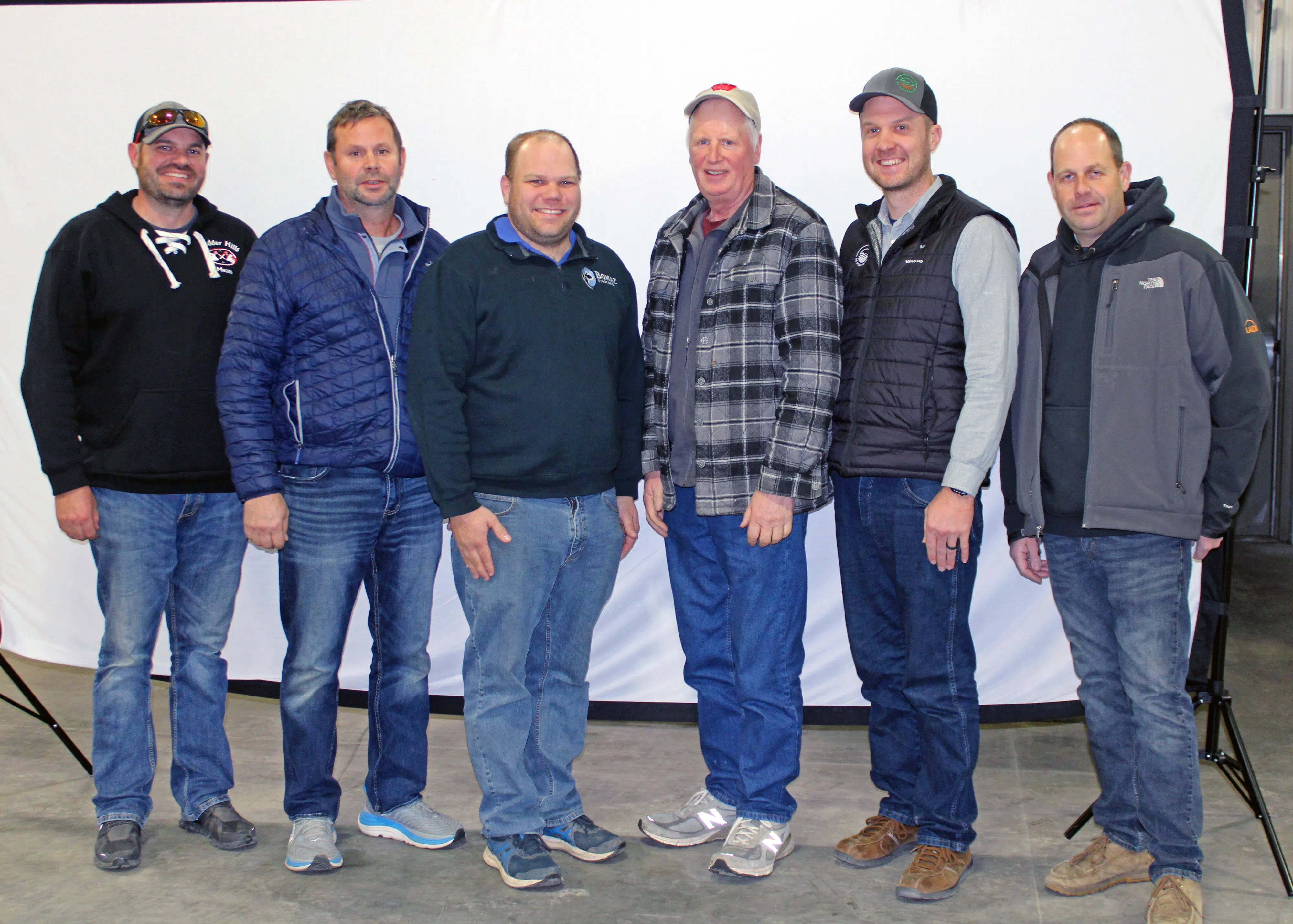BALDWIN, Wis. ― Western Wisconsin Conservation Council held its annual meeting on Dec. 12 to share research findings and discuss outcomes from 2024. In its seventh year, this farmer-led watershed conservation group has experienced continued growth and progress in advancing sustainable agricultural practices.
The meeting focused on research outcomes based on data analysis from the past year while looking ahead to opportunities in 2025.
Marti Viste, sustainability project specialist with Farmers for Sustainable Food, shared the group’s 2024 Member Conservation Practice Survey results. With seven years of data, the number of survey responses has increased significantly. The 2024 survey shows the group’s use of various conservation practices, including soil sampling, planting cover crops, utilizing no-till and reduced-till methods, split nitrogen application, low disturbance manure application and planting directly into cover crops, also known as “planting green.”
“The survey results continue to demonstrate how conservation practices are having a positive impact on climate, soil health and water quality,” Viste said.
WWCC member Dave Tollberg and University of Wisconsin River Falls Professor Dr. Jill Coleman Wasik provided an update on well testing results and DATCP’s Nitrogen Optimization Pilot Project, looking at variable rate nitrogen application.
“What a difference a year can make in a plot study like this,” Tollberg said. “It’s good to see multiple years of data to be able to compare yields and consider other factors, such as crop rotation.”
Dr. Wasik was inspired by the group’s efforts and the potential opportunities they could bring in the coming years.
“What you’re doing here as a group is having a ripple effect outward,” Dr. Wasik said. “This year, I want to emphasize sharing the good work we’ve been doing together because I think it’s worthy of being celebrated.”
Mitchell Hora, seventh-generation farmer and founder and CEO of Continuum Ag, discussed potential opportunities for carbon intensity scoring with the 45Z tax credit offering, which is anticipated to go into effect in 2025. Biofuel plants could be eligible for these tax credits by reducing their carbon footprint.
“As farmers in the supply chain, we are part of the equation,” Hora said. “I talk about carbon intensity because I think it’s going to provide opportunities for farmers to get financially compensated for their soil health practices.”
Jamie Fisher, senior project manager for Farmers for Sustainable Food and Viste shared a project opportunity for WWCC members through the FSF Climate-Smart Program. Farmers are now enrolling for the second year of the project and are receiving financial compensation for participating. Any farmer who wishes to enroll in the second year of the project must sign up by February 15, 2025.
WWCC vice president Greg Friendshuh thanked partners and members for their support and involvement throughout the year.
“I encourage all of you to look for ways to get involved in 2025 through membership, events, field days and any other suggestions you may have,” Friendshuh said. “We welcome new ideas and plan to host multiple field days and learning opportunities in the next year.”
The group concluded the meeting with board elections. Mark Serier and Kyler Hinrichs, secretary, were elected as new board members. Outgoing board members include Dave Tollberg and Skip Grosskreutz.
Other board members include Todd Doornink, president; Greg Friendshuh, vice president; Tom Zwald, treasurer; Spencer Anderson, Larry Knutson, Kevin Solumn and Jerry Emmert.






Comments